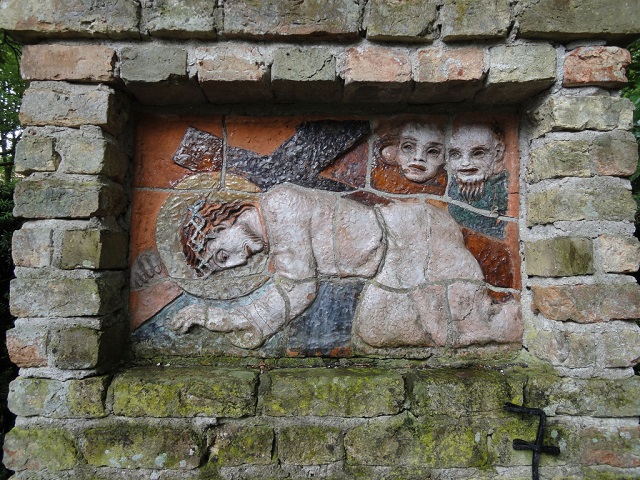Dear Working Preachers, this Sunday begins one of the most important weeks of the church year. As you already know. A lot of weight falls on Palm/Passion Sunday — either to fit in as much of Holy Week as possible, knowing full well that we won’t see most parishioners until Easter morning, or to make a case for why attendance on Maundy Thursday, Good Friday, and perhaps Easter Vigil could very well fulfill all righteousness. So what do we preachers do with such knowledge, with such encumbrance, with so much at stake?
Well, I think your preaching role is not to prove that this week matters, to excuse it, to convince or persuade or haul out evidence to advocate for an event that for all intents and purposes cannot be understood. Your preaching is not to anticipate your congregation’s absence from this week’s worship, casting blame or shame, or trying to get the whole story in front of them so as to rationalize the week’s worth. Because as soon as we decide on that route, we’ve determined that the best way to get people on board with a God who chose to be human, a God who died, a God whom the empire humiliated and killed, is to explain our God. As if God could be explained — and which is mostly a censored version of the truth. If you set your sights on apologetic or argument, insisting that this week means more than any other? That’s not going to work.
We want to try. I know. Because our gut reaction to transcendence is validation and justification. The holy other of God, especially when God insists on eschewing this essential essence of God, is often our most present challenge.
Holy Week should make a difference, but it won’t make a difference if all we do is insist on how important it is or should be. The result will only be a circular contention — Holy Week is important because it’s Holy Week; and Holy Week is important. Few will be convinced by such petitions.
Why? Because the core of the Christian faith cannot, should not, and will not be believed. What we preach flies in the face of truth, of power, of all earthly principles and authorities. What we have dedicated our lives to is something that a good portion of the world sees as, at the very least, uncomfortably outside believability and at worst, crazy. No wonder we default to explanation. No one will believe us. No one should believe us. And maybe that’s what we need to remember. Acknowledge the offense. Recognize the resistance. Preach into the discomfort, disillusion, and disappointment.
What if on Palm/Passion Sunday you set a tone for what is to come? Invite people into the palm and passion that is ours to live. This Sunday is not simply an entry into what must be endured. It reveals the passion of what must be — and maybe you give witness to how it matters for you. Not that you over-personalize or individualize your preaching. Not that you traverse into some sort of autobiographical homiletic. But that you look forward to the witness of Mary Magdalene, “I have seen the Lord!” and imagine how her words can be your own.
Everything about this week — the foot-washing, the meal, the words of farewell, the fervent prayers, the betrayal, the arrest, the denial, the torture, the suffering, the separation, the grief, the disbelief, the crucifixion, the burial — is not just emblematic or example of what it means to be a Christian. This would be a momentous miscalculation — to communicate that Monday through Saturday is but a mere moment in Christian history or a WWJD (What Would Jesus Do?) kind of week. Nor is it mere observation of what Jesus did for us. No, it is the center of Christian identity, articulating what a Christian life looks like beyond Easter Sunday.
This is the homiletical key for Holy Week — that this week might actually matter beyond an historical marker. Beyond an anticipated and necessary and yet extraordinary death. Beyond any kind of theological warrant. We go through this week, preaching, living, teaching, being fully aware of the ways in which the Christian faith cannot be reduced to a rather benign and ritualistic belief. Oh no. Holy Week is not procedural but the evidence of power that topples empire. Not status quo but the demonstration of social insurrection. Not rote resistance but the call to habitual revolution and reformation.
Holy Week sets in motion our diligence in making sure Easter matters. It sets in motion maintaining our vigilance to the witnessing of the Gospel — especially in the face of those who will give up on Gospel once Easter has run its course. It sets in motion our persistence in making sure that each and every sermon from here on out never forgets the pattern of the Christian life — a rhythm that might change in its time signature or pace, but that has as its core key proclamations of fellowship in the midst of betrayal, love despite despair, suffering when there is no other choice, death as inevitable, and yet the promise of new life. We need the why of Holy Week as much as, sometimes even more so, than those to whom we preach.
Karoline

